Blog
Preservation and exploitation
Jacob reports from the North American Epic bike tour:
Riding amongst huge mountains in Jasper National Park, it is hard to believe that we started the Icefields section nearly two weeks ago at Fort St John in the Alberta prairies. Departing the rather humdrum town, it was almost unimaginable that a week later we would be experiencing the most spectacular riding of the tour so far. ‘The whole scenery and weather improved with each day‘, reflected Dutch rider, Remmelt. ‘The construction work was challenging to ride in‘, he added, referring to the difficult days south of Fort St John. Busy towns, bad weather, and road construction all dampened the enjoyment levels on some stages. This was to be short lived, however, as we soon returned to the mountains in the outstanding Jasper National Park. Even compared to the impressive scenery we have already experienced, there is something unique about this place. For a start there are virtually no heavy vehicles, and instead small cars full of families on holidays – something that makes the riding much more pleasant. The rest day resort town of Jasper was a world away from the industrial Fort St John, a place which was not endeared to people as everything was closed due to a British Columbia public holiday.
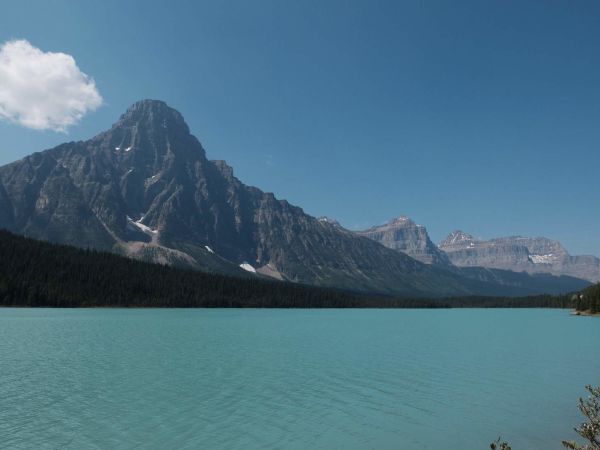
Jasper, on the other hand, has been the gateway to some of the best cycling so far. With riders taking stages at a leisurely pace in order to visit the multitude of waterfalls and viewpoints that line the roadside. ‘It has been a privilege to be riding‘, said full tour rider from Australia, Diane. Many others echoed similar sentiments. Sectional rider, Chris, put it simply – ‘awesome‘. Marie described the experience as beyond words, and that taking all the positive adjectives in the dictionary still wouldn’t come close to conveying the visceral nature of riding in this natural paradise. Edmontonian rider, Bob, explained that despite having cycled between Jasper and Banff multiple times, it will always be ‘the best three day ride I have been on‘. The highlight for Australian rider, Fiona, was what locals call the ‘toilet bowl descent‘, a moniker that rather crudely describes the curvature of the road as it descends a mountains pass and it’s likeness to a toilet seat. There was really something for everyone in this section, and the amount of positive praise could easily fill multiple blog posts.
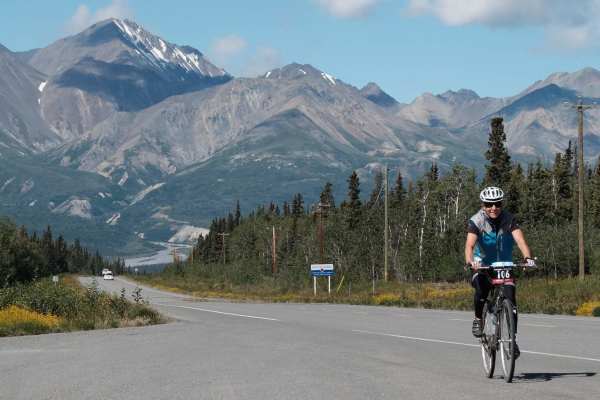
However, the most stark contradiction of this section has been the disparity between riding through countryside riddled with fracking sites, and then journeying into a highly protected national park. On the Alberta prairies we saw dozens of tankers ferrying contaminated water from the fracking sites that could be seen dotted across the landscape. It was quite jarring that within only a few days riding there were such divergently used areas of land. One being exploited, and one being protected. Fracking is a highly controversial practice across the world. It is out of sight, far below ground, but massively damaging to the environment. It is a shame to think of what could happen to the forests and wildlife on the surface as a result of this practice.. However, on the flip side, it is extremely positive to see what can be done when natural areas, like Jasper and Banff national parks, are protected, and reaffirms the need to rigorously defend the land that we all share.
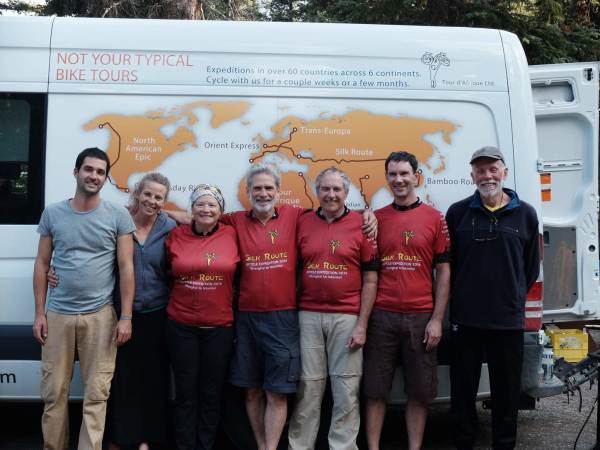
The rest day in Banff is where we sadly say goodbye to a large number of riders who have been with us since Anchorage. Keith, Dan, Marielle, Remmelt, and Chris who joined in Whitehorse. It will be a shame to continue this journey without those who have made it so colourful and entertaining so far. ‘I will miss it definitely‘ said Remmelt, on the penultimate day before Banff, ‘I would go all the way If I had time‘. There has been a brief Silk Route 2014 reunion with alumni Mike, David and Don joining the tour between Jasper and Banff. It is nice to see riders from previous tours reunited, and reliving some of the experiences they had together. Hopefully the riders from this year’s North American Epic will form similar bonds, and make cycling reunions in the future.
 REGISTER NOW
REGISTER NOW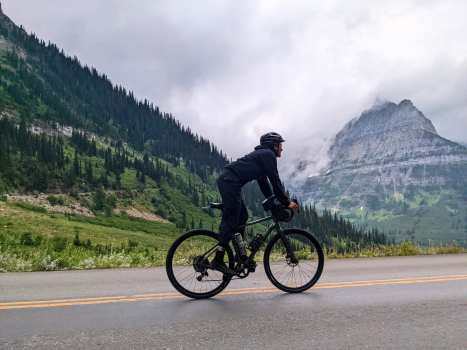

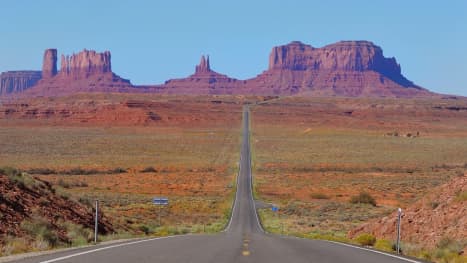
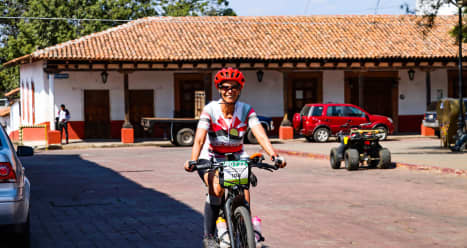

4 Comments for "Preservation and exploitation"
Enjoyed the update until I got to the paragraph about the Oil Field. What do you think pays for the national parks, what goes in the tank of your truck? Come up with an economical alternative and put the Oilfield out of work, but even at $40 Oil I don’t see any other energy sources taking over the top spot. Isn’t it better to see “tankers ferrying contaminated water” than contaminated water being leaked? Come on guys, I know you are better than this, or at least the people Henry used to hire were! Is fracing ” massively damaging to the environment”? Is a bicycle tour blogger the best person to answer that question? What could happen to the forests and wildlife on the surface as a result of fracing? Please enlighten me!
When you come through Calgary give me a call and I’ll be happy to explain the ways Alberta is leading the world on responsible resource extraction.
Rick Wasfy
TdA 2010
Hey Rick, how have you been? You’re right that a blog writer isn’t the person to be answering such questions. Perhaps in Alberta the practice of fracking is much cleaner than elsewhere, and if so I apologise. However, what I as a layperson can deduce from the current debate worldwide is that there is no way to guarantee that contaminated water won’t seep back to the surface or enter a water source. Hence damaging the forest and wildlife above with contaminated water. Many of the local people we spoke to told us how fresh water was being pumped from rivers to be taken to the fracking sites and disrupting the eco-system in some areas. So it’s not only the contaminated water as a by-product of the fracking, it is also the harvesting of fresh water from nearby water sources that damages the wildlife above ground.
I understand wholeheartedly that the modern world consumes and requires vast amounts of energy, and fracking is a small part of the resources used to achieve this. However, that shouldn’t prohibit a discussion about how this energy is produced, especially when it is such a divisive method such as fracking. It is difficult to sit on the fence in an 800 word article, and I personally feel that it’s not a controversial statement to say that fracking is a controversial practice. Again, if I am misinformed about the standards in Alberta then I apologise, and I don’t mean to disparage anybody working in the industry. I was speaking from the collective experiences of our group cycling through this region, and the contemporary public dialogue about the issues and controversies surrounding fracking.
Thank you for responding to the article. As far as I am aware nothing I have written is inaccurate. Due to the short form nature of the blog it is difficult to go into details, and again I apologise for making generalised statements. I hope you have been doing well since we cycled TDA 2010, and speak to you soon.
Cheers,
Jacob
So pleased to hear that everyone seemed to enjoy my favourite town of Jasper and The Icefields Parkway. I have visited Jasper many times for skiing trips and have been up and down the Parkway by bus many times also.
Two years ago it was a real thrill to ride into Jasper and visit my many friends there on the rest day. Then to leave on The Icefields Parkway to ride onto Banff was something really special.
I hope that you all carry on enjoying the days that are still ahead of you, but so pleased that Alberta gave you the same feeling as it has always given me!!
Fracking is indeed controversial. Canada has abundant fresh, clean water sources which many places in the world lack. This fracking method consumes huge quantity and with the global warming and glaciers melting, we all should be concerned with using fresh water for fracking.
As for energy consumption, there are many other ways of reducing our dependency on oil. Riding bicycles, switching to ecars or hybrid would be a step in the right direction.
Many Albertans are very defensive when oil production is being scrutinized.